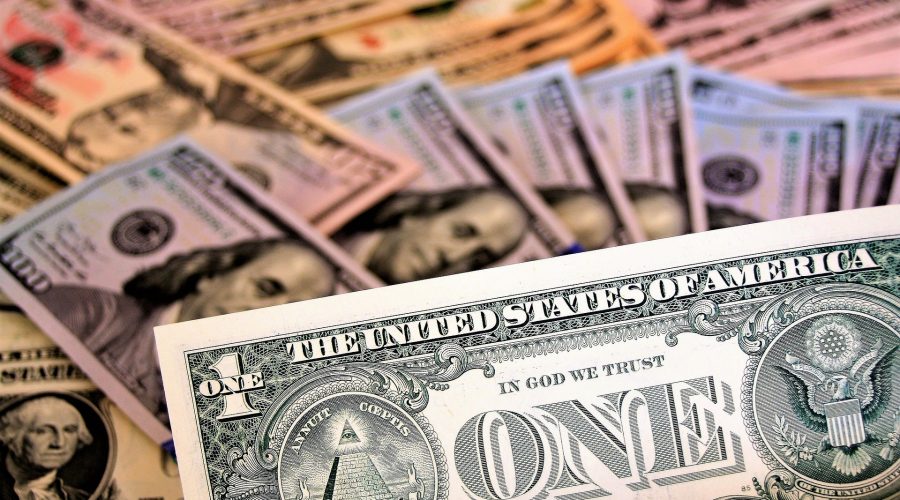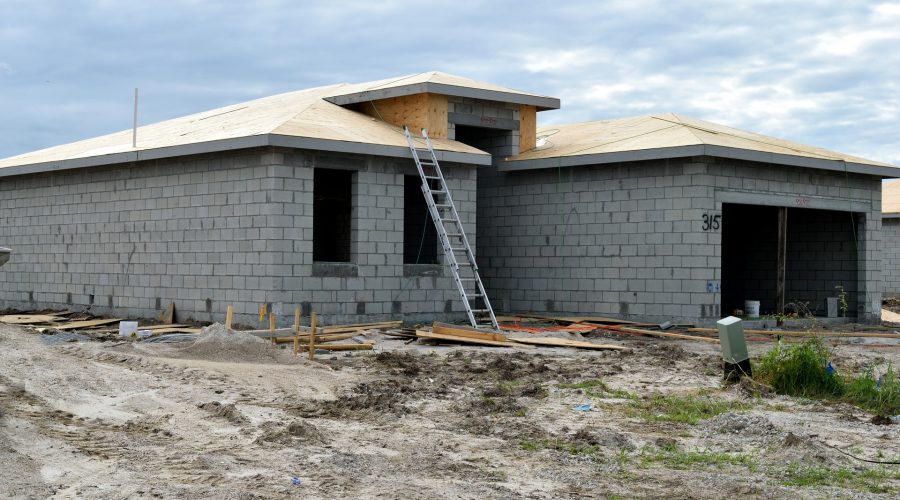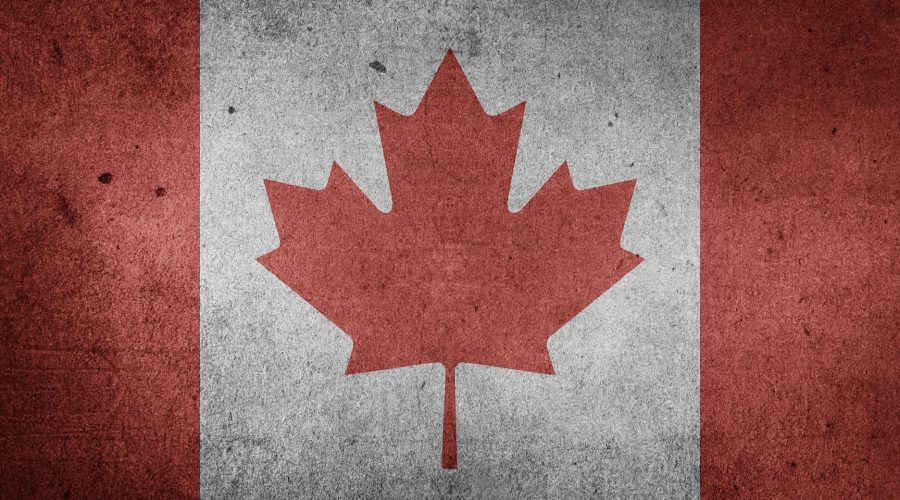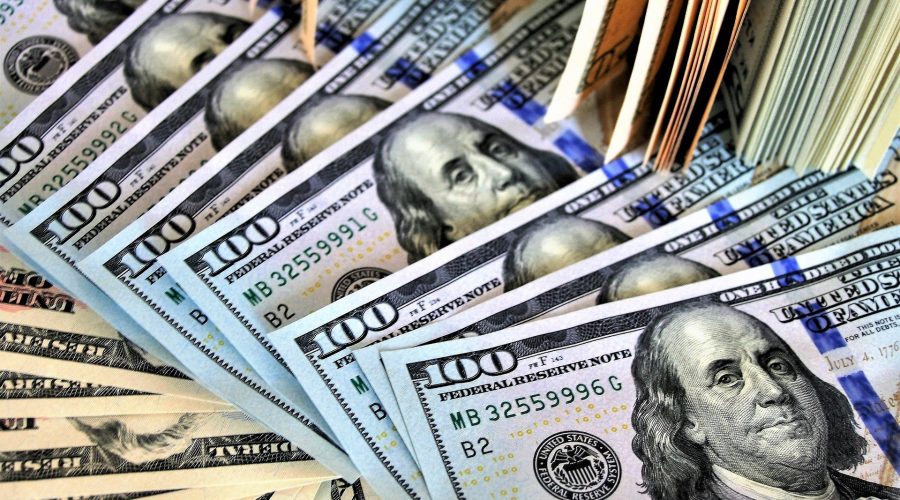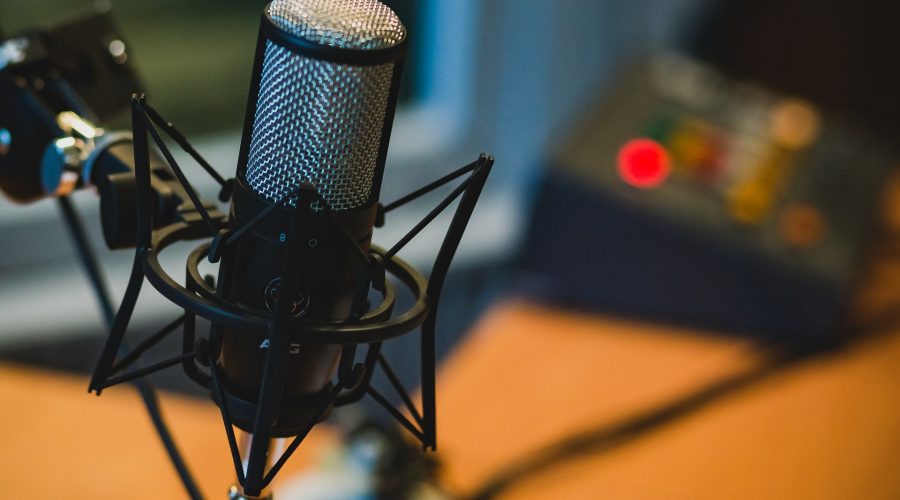Is the Fed Shorting Bitcoin?
So, the other night, I had a dream, and I woke up from this dream. And it was like it was real. And it was about the Fed. And it was a very scary dream. When I woke up the other day, I haven’t been able to really sleep since and I’ve been thinking about it. I’m like, do I make this podcast? Do I record this concept? Do I freak people out? Do I create controversy? And I’m like, you know what, I got to at least say what I’m thinking. I think the Fed is in trouble. And if the Fed is in trouble, when you’re in trouble, you do desperate things, right? And I think the Fed has the ability to do desperate things. First of all, let’s start with what the Fed is. The Fed is not even the government, the Fed is some entity that’s owned by people that we don’t know who they are. That it’s called federal. And it’s called reserve. Neither one of those things are true. So just the name Federal Reserve Board, or Federal Reserve Bank, neither of those terms. And those phrases are actually true. Because they’re not federal, they’re not part of the government. They’re not reserves, there are no reserves, there used to be, we used to have some reserves. And you know, they’re not a bank. Like they are a money printing press. So, everything in the name is meant to just obfuscate the kind of tyranny or the kind of lying that’s going on. Now what I mean is you probably are hearing that we are going well, that the United States is fine. And you know, we’ve been fine for 250 years. Yeah, okay, fine. But governments end, right. And when they end, you don’t expect them to end. Like nobody expected Hitler to come to power, right? Nobody expected. It.
The concept here is that the Fed is painted into a corner, they started really painting themselves heavily into this corner. Of course, it’s been happening since 1971, when it went off the gold standard, but it’s happened before and before and before and every government has happened before.
About when we went off the gold standard, the Fed really went to a totally Fiat by decree, money standard, right, which basically means print money when you want to. The government now is realizing they’re sitting next to stacks of money and they can buy votes. What they do is they got to pass laws, and they do these big old plans with $3, $4 or $5 trillion. And now we’re just printing money If you look at the graph, it looks like a hockey stick. And then all of a sudden, it just goes off the off the charts. It is just straight up right now. And they have to continue printing money because the money has been propping up all these assets. We have bubbles everywhere. We have bubbles in real estate, we have bubbles in the stock market. We had a bubble in cryptocurrency that’s kind of blown up. We’re getting rotating corrections, rotating bubbles bursting around the world. And it’s because we’ve faking, we’ve made money that’s out of nothing. The ECB has done it in Europe, the Japanese yen has done it, not quite to the extent that we’ve done it, China’s doing it, Russia is doing it, everybody’s printing money, and the money is becoming worth less and less. Certainly, when you compare it against Bitcoin, and that’s where I had this dream. And the dream is that the Fed has decided to crush Bitcoin.
Man, what does that mean? Well, how can you crush Bitcoin? Well, you can crush it by decree. You can crush it with law, you can crush it with the media, you can crush it with FUD, fear, uncertainty and doubt. And that’s what they’re doing. They are not allowing regulated spot markets. We’re turning down ETFs that are spot currencies even though people want to invest in them. We’re making it really hard for people to buy, with the IRS scrutiny. If you try to open up a crypto account, you can do it but it’s like you have to you know, dance on one foot and eat crackers and sing a song and like you have to do all this stuff because of what they call KYC laws (know your customer) and AML anti money laundering. And by the way, they try to blame crypto and Bitcoin for money laundering. But it’s not like the dollar or the yen, or the euro doesn’t have anything to do with money laundering. I mean, people walk around bags of cash and buy drugs and you know, they hide money and it’s just crap, right? And so, the Fed is really threatened by Bitcoin, specifically the other Cryptos maybe too, but mainly Bitcoin. Why? Bitcoin has a scarcity? It has 21 million, and that’s all that’s ever going to be printed for Bitcoin. So, everything else will be measured in Bitcoin at some point, because it’s got the only thing that doesn’t move in value, right? It’s a Bitcoin, like, I don’t know if people think Bitcoin crashed or not. But the way I look at it is when I bought a Bitcoin, a few months ago, it’s still worth one Bitcoin, right? It may not be worth as many dollars to the Bitcoin, but that fluctuates. A few months before that it was worth twice as many dollars or three times it’s gone up 50,000% in 11 years.
If you measure it by the dollar, if you measure it by the Bitcoin, it’s the same. Gold is got the same value, right? It still buys the same amount that it did before. It’s just measured in dollars, so you could see fluctuating. Alright, so I thought, would the Fed, could the Fed be sinister enough to short Bitcoin?
Alright, so let me explain what shorting is. First of all, shorting is when you sell something you don’t own. In the stock market, normally people go and buy low and you sell high. That’s how people make money. Well, in the stock market, and in other markets, you can short things, which means you sell them first. And you can buy them back at a later price, hopefully a lower price at a later date. And so that what happens, let’s say you wanted to short Tesla, you think that they’re not going to hit their numbers this quarter, you think that Elon Musk is a jerk, whatever it is, and you short Tesla at $1,100? And you say, “I’m going to buy Tesla back when it goes to $900”. That means you can make $200 on your $1,100 investment. Because it is an investment, even though it’s short. When you sell something, of course, you know what happens? You get money when you sell something.
But how can you sell something you don’t own? Well, the way mechanically it works behind the scenes, is you have to go borrow it from somebody who’s willing to lend it to you. So, you have to go borrow those shares of Tesla, and then you go out and sell them. Then you have to pay something to the people you’re borrowing them for. Because when you borrow something, you usually incur interest, you’re borrowing, you’re incurring an interest charge, you’re paying to the people that lent it to you, and then you’re hoping it goes down. And when it goes down, you can use that interest to pay back the person that lends it to you. Okay, that’s what happens behind the scenes, you borrow it, you short it, you sell it, and then you hopefully buy it back at a lower price. Instead of buying low and selling high, you just do it in the opposite order. You sell high and you buy low.
But we all have, you and me and the institutions, we don’t have unlimited money. But you know, who does the Fed. So, in a normal case, if you short Tesla, and it goes up, they make you come up with the money because it could it could go up to infinity, I would say you know if you short things, it’s really risky, because things could go to infinity when nothing goes to infinity, but doesn’t mean you can’t withstand a big old spike.
And so, if Tesla starts to run up, the brokerage firm calls you up, and they say, “Hey, Mark, it’s time for you to bring in some more money, because now you’re out of whack”. If Tesla keeps going up, you need, we mark the price to the market. And when we mark it to the market, that means if it’s going to 1300 you got to come up with that extra 200 bucks because now, you’re in the hole and the brokerage firm isn’t going to pay it… !?
So, what about Bitcoin? What about the Fed? The Fed might have put out through its minions. By the way, the government would never lie to us, right? They would never take our gold; they would never lie to us. They would never tell us that there’s weapons of mass destruction in Iraq so, we need to go and invade. They would never lie to us. Why would they do that? They lie to us all the time, guys, especially lately. I don’t know if you’ve noticed. But let’s just say that they’re lying to us in this case, or maybe they’re not. But they’re they might be saying through a subsidiary located in Switzerland, Luxembourg, or even, you know, stateside one,” hey, listen, we’re going to just keep giving you money, all you have to do is short Bitcoin, drive it down”. And bitcoin comes down 50% this year, if you measure it against the dollar. And so, they started at 65,000 – 69,000. They just started shorting it. They said, “we’re going to be out of business anyway so what do we have to lose, we’re in trouble”. Go ahead and start shorting it, we’ll keep giving you money.
And, you know, if it goes up, we’ll give you more money. But if it goes down, you’ll be here, we’re going to be in a profit, you’re not going to have to come up with any money. And so, they’ve driven it down. Let’s say, this isn’t a dream, right? So, they’ve driven it down and they keep driving it down and they’re up 50% on their investment at some point. They’re going to have to buy it back. Maybe. Or they just keep driving it down until people can’t take it anymore. They can’t take it anymore, and then they have enough time to cover it up. Oh, it’s so good. So, it’s so risky, it’s going to hurt people, it’s already gone 70% 80% 90%. No one will be able to buy it all back. But nobody will be able to buy it from them. Because they’ll have outlawed it, at least here in the United States. This is just a theory, just a dream, just the concept. But imagine because they have unlimited wealth, unlimited ability to print money, that as it goes up, they just keep shorting it because they could keep, you know, keep putting the money in, and they can keep the price depressed. Now I think eventually it tips because you’re starting to see countries go to Bitcoin, you’re starting to see states, Texas, Arizona, Tennessee, Oklahoma, they’re all talking about a Bitcoin standard in their states, there are cities, Miami city, that’s Bitcoin, the mayor of New York is taking a Bitcoin salary, a lot of sports people, it’s getting out of their control, and they’re running out of time.
So, they need to crush it. Now, I know this is controversial, and it’s just a dream, right? It’s just a bad dream or a nightmare. But what if the Fed actually did have the power? Or did have the idea to short Bitcoin? Because a lot of people are saying, you know, isn’t affected by Bitcoin, because they’re behind the curve, you know, and if they started investing in Bitcoin, then they’ll be part of the future. But the Fed doesn’t think like that. The Fed is a self-preservation entity. And if they can crush Bitcoin, rather than being part of it, it’s a competitor that can crush them.
And maybe that’s the solution.
Now, I’ve never heard anybody talk about this, but I think it’s viable. I think it’s possible. And it’s awfully scary. Because if they can do that with your money, because this is your money, your taxes are going to fund the money to pay back all these deficits that we’re running, and these fake printing presses that the Fed is using.
If the Fed is using your money to do that, you should have a say in it, because it’s your money.
It’s really scary.
If there’s a place below the video, if you’re watching the video, make a comment. If there’s a place where you can make a comment on the podcast, make a comment. I’m curious to see what you think. By the way, follow me like subscribe, you know all that stuff. It would really help me out a lot. We’re getting this podcast going right now. And we could really use your support. I hope you like the little dream that I put out. I hope you like the concepts that we’re going to be starting to put out. Might be a little controversial. Might not might be the future. I don’t know. But boy, is it scary if the Fed could short Bitcoin with your money, run it out of business, the only thing that’s really competing with it.
Think about it.
- By Heather MacKay
- In Blog
- 0 comments

